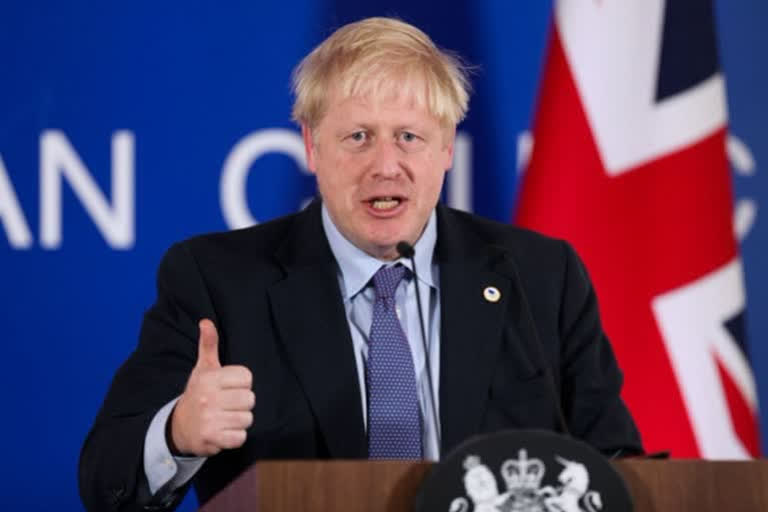London: British Prime Minister Boris Johnson warned Sunday that more onerous lockdown restrictions in England are likely as the country reels from a new coronavirus variant that has pushed infection rates to their highest recorded levels.
Johnson, though, insisted he has “no doubt” that schools are safe and urged parents to send their children back into the classroom in areas of England where they can. Unions representing teachers have called for schools to turn to remote learning for at least a couple of weeks more due to the new variant, which scientists have said is up to 70% more contagious.
The U.K. is in the midst of an acute outbreak, recording more than 50,000 new coronavirus infections a day over the past five days. On Saturday, it notched a daily record of 57,725 new cases. The country, with nearly 75,000 virus-related deaths, is alternating with Italy as the worst-hit European nation, according to figures compiled by Johns Hopkins University.
“We are entirely reconciled to do what it takes to get the virus under control, that may involve tougher measures in the weeks ahead,” Johnson said in an interview with the BBC. “Obviously there are a range of tougher measures that we would have to consider.”
Johnson conceded that school closures, curfews and the total banning of household mixing could be on the agenda for areas under the most stress.
London and southeast England are facing extremely high levels of new infections and there is speculation that restrictions there will have to be tightened to bring the virus under control. In some parts of the British capital and its surrounding areas, there are around 1,000 cases per 100,000 people.
Johnson’s government is using a tiered coronavirus restrictions system. Most of England is already at the highest Tier 4 level, which involves the closure of shops not selling non-essential items and places like gyms and recreation centres as well as a stay-at-home instruction.
“What we are using now is the tiering system, which is a very tough system, and alas probably about to get tougher to keep things under control,” he said. “We’ll review it and we have the prospect of vaccines coming down the tracks in their tens of millions, offering people literally life and hope.”
Also read: German politician wants lockdown extended
The U.K. has moved quickly on the vaccination front. It was the first to begin vaccinating people over 80 and health care workers on Dec. 8 with the Pfizer-BioNTech coronavirus vaccine. Last week, regulators approved another vaccine made by Oxford University and pharmaceutical giant AstraZeneca that is cheaper and easier to use than the Pfizer vaccine.
Hundreds of new vaccination sites are due to be up and running this week as the National Health Service ramps up its immunization program with the Oxford-AstraZeneca jab. Officials say around 530,000 doses of the new vaccine will be in place Monday as the country moves towards its goal of vaccinating 2 million people a week as soon as possible.
“We do hope that we will be able to do tens of millions in the course of the next three months,” Johnson said.
The Oxford-AstraZeneca shot will be administered at a small number of hospitals for the first few days so authorities can be on the lookout for any adverse reactions. Hundreds of new vaccination sites — at both hospitals as well as local doctor’s offices — are due to launch this week, joining the more than 700 already in operation, NHS England said.
In a shift from practices in the U.S. and elsewhere, Britain plans to give people second doses of both vaccines within 12 weeks of the first shot rather than within 21 days, to accelerate immunizations across as many people as quickly as possible.
“My mum, as well as you or your older loved ones, may be affected by this decision, but it is still the right thing to do for the nation as a whole,” the government’s deputy chief medical officer, Professor Jonathan Van-Tam, said in an article for the Mail on Sunday newspaper.
AP



